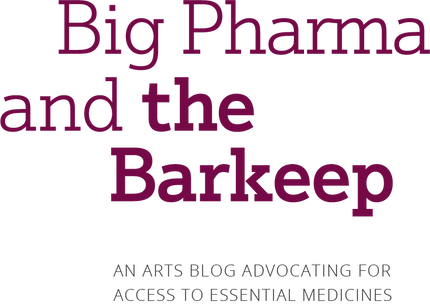|
This Op-Ed first appeared in The Gettysburg Times September 8, 2022
This bumper sticker isn’t necessarily meant for public health, but “EVERYONE does better when EVERYONE does better” fits perfectly when we talk about access to healthcare and access to essential medicines. So does this abstract ink drawing from Eric H. Crump’s series. I happen to come into possession of both the artwork and the bumper sticker in August when the Inflation Reduction Act was signed into law. We are connected. We are interdependent. The Johns Hopkins Bloomberg School of Public Health defines public health this way: “In the medical field, clinicians treat diseases and injuries one patient at a time. In public health, researchers, practitioners, and educators prevent disease and injury at the community and population level. We identify the causes of disease and disability, and we implement large-scale solutions.” The issue of drug pricing is both a public health issue and an individual medical issue. Public health can seem abstract because it is concerned with populations, but connections are connections, and every population is made up of real people. The senators and house members who voted against the Inflation Reduction Act voted against the needs of real people. For 19 years Medicare has been blocked from any kind of negotiating prescription drug costs. According to the White House News Release from August 15, the pharmaceutical industry has already spent $187 million on lobbying in 2022. That is $187 million in this yet-unfolding year to put obstacles between real people and the drugs they need. In a recent NPR Weekend Edition author interview about A History of Present Illness, Dr. Anna DeForest zeroed in on a truth about those who hold so much power they don’t even notice it. “I realized something about power, which is that it’s not a feeling. It is the absence of obstacles.” This is not a partisan issue. It is a voter issue. It is a public health issue linking us as taxpayers and patients and healthcare providers and members of congress in dramatic and subtle ways. In November, consider where candidates stand on access to medicines. Notice who includes you and who excludes you. Notice who would rather pay for obstacles than for access. Notice who wants everyone to do better. Katy Giebenhain is a member of the Gettysburg Area DFA Healthcare Task Force.
0 Comments
|
BP&theBAn arts blog advocating for access to essential medicines Archives
June 2024
Categories |


 RSS Feed
RSS Feed